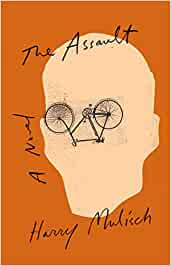The Assault: 7 Lessons to Live By
“Everything is forgotten in the end. The shouting dies down, the waves subside, the streets empty, and all is silent once more.”
Harry Mulisch in The Assault
It’s Reading Week, the so-called break before the home stretch but necessary for the final onslaught of assignments. I’ve been working on an essay for my Dutch culture course based on a novel titled The Assault, by Harry Mulisch. Based on a true story, it takes place between 1945 and 1982, its message is timeless. It seemed appropriate to share, especially since I was writing it up anyway, albeit in a different format.
The story begins in January, 1945 when the Netherlands have been under Nazi occupation for five years. People are starving and beyond stressed. The Resistance is in full force. Jews are being loaded onto trains and sent to death camps. Twelve-year-old Anton Steenwijk and his family are about to start a board game before heading to bed when gunshots reverberate outside their home. They look outside to see that a Dutch police officer has been shot. Anton’s house is destroyed and he is the only one who survives, but not without repercussions that carry him for a lifetime. When Liberation comes five months later, it gives Anton little to celebrate.
Many years pass before he allows any light into the darkness that descends the night of the Assault. These themes emerge in time for him to envision a future for his children and grandchildren:
The Assault’s 7 Lessons to Live By:
- Life, and the people in it, are often not as they appear. We often cannot take either at face value. Without that understanding, we miss deepening important relationships, including with ourselves.
- Life is a constant balance between darkness and light, love and hate, and often the lines blur. No one is always right or always wrong.
- We never know what is going on in another person’s life. Live true to your values and treat others with dignity and respect.
- Even the worst storms end, and there are always things we can do to minimize the damage before, during, and after the tempest.
- We all want the best for ourselves, our families, our countries. No matter what our differences, at some point, there is common ground.
- We often miss that we are moving in the same direction.
- Show gratitude for what we have.
Six years after the event Anton returns and is shocked at how life is continuing on. Weeds grow on top of the rubble that was once held his family home. A new family has moved in next door, oblivious to what happened. It is a good book with many interconnected themes, not the least of which is that we are all connected. We are all here sharing the same earth! We are all moving in the same direction.

